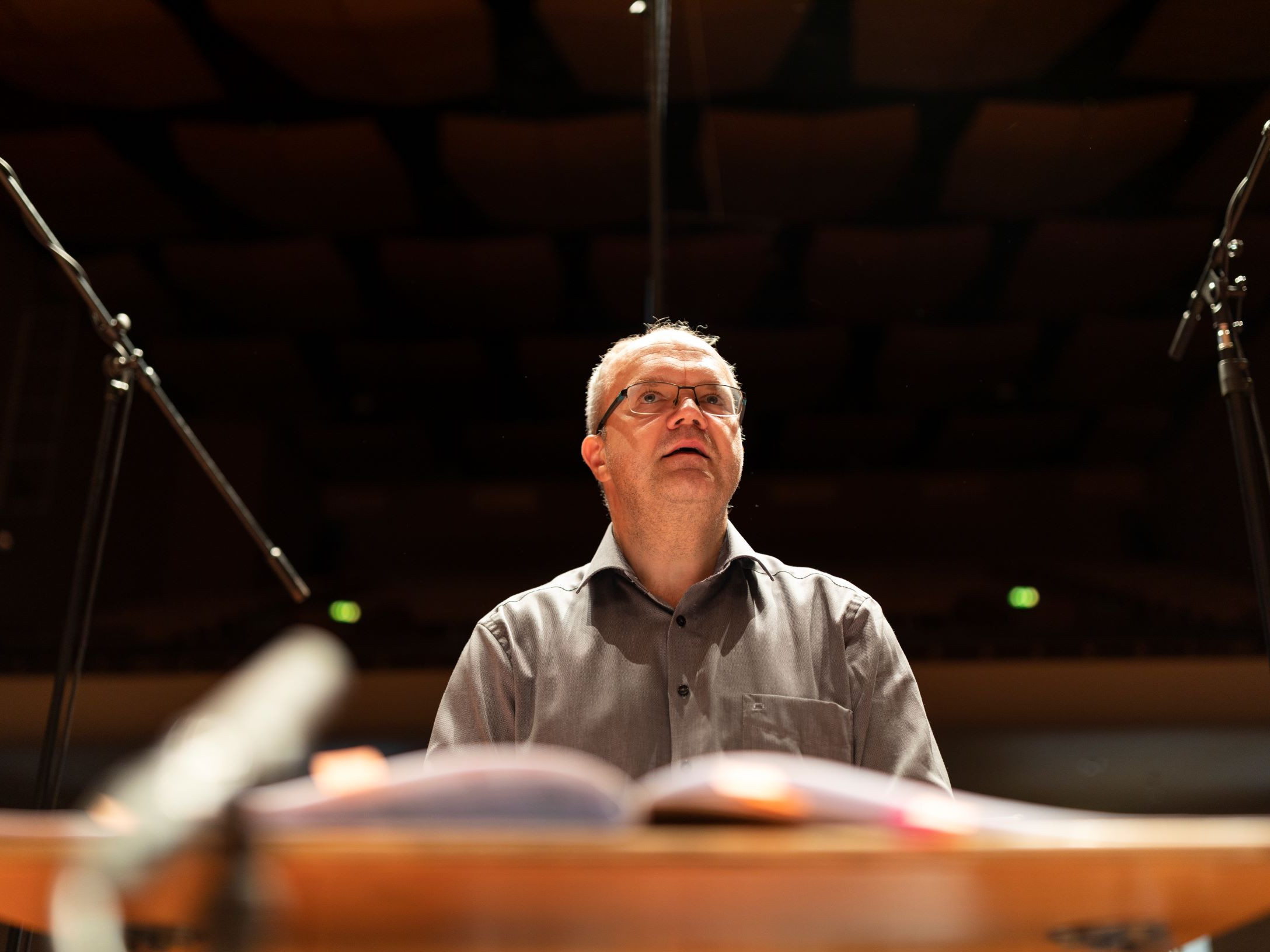
Māris Sirmais
(27.06.1969 )
conductor
Conductor Māris Sirmais is one of the most important names in Latvian choral music.
“He is a conductor with a persistent will, charismatic capacity, unyielding strength and an unrivalled laugh. His more than twenty-five years of work in Latvian choral music and culture is like the steam that promotes boiling, influencing and leaving a lasting mark on the collective subconscious. Those who have ‘graduated from the Sirmais school’ emphasise that it has taught them a proper attitude towards work and life in general,” writes musicologist Lauma Melnace.
Sirmais has served as the artistic director and chief conductor of the State Choir “Latvija” since 1997. He is also the chief conductor and artistic director of the International Sacred Music Festival initiated by the choir. He helped establish the “Kamēr…” youth choir, which has become one of the most vivid symbols of Latvian culture, and was its principal conductor from the choir’s founding in 1990 until 2012, leading the ensemble to more than one hundred international awards. Sirmais has also been the conductor of the “Dzintars” women’s choir. He has been involved with the Latvian Song Festival tradition since 1998, where he serves as a principal conductor, a member of the festival’s artistic committee and the creator of the artistic concept for festival concerts. He has also conducted at Latvian School Youth Song and Dance Festivals.
Sirmais has premiered countless works by Latvian composers – a cappella programmes as well as collaborations with organists and orchestras. He has interpreted the music of Rihards Dubra, Ēriks Ešenvalds, Pēteris Butāns, Līga Celma-Kursiete, Georgs Pelēcis, Pēteris Vasks, Jēkabs Jančevskis, Uģis Prauliņš, Rihards Zaļupe, Raimonds Tiguls, Platons Buravickis and many other Latvian composers.
As part of the “World Sun Songs” project in 2008, Sirmais invited seventeen world-renowned composers to create new works for the “Kamēr…” choir, among them Raimonds Pauls, Sven-David Sandström, John Tavener, Urmas Sisask, Leonid Desyatnikov, John Luther Adams, Vytautas Miskinis, Dobrinka Tabakova, Alberto Grau, Giya Kancheli and Pēteris Vasks.
Sirmais regularly collaborates with the Liepāja Symphony Orchestra and the Latvian National Symphony Orchestra as well as the Latvian National Opera Orchestra, Sinfonietta Riga and Kremerata Baltica. He has conducted the Musica Viva chamber orchestra in Moscow, the Umeå Symphony Orchestra and Helsinki Strings. He has collaborated with world-renowned soloists, including Maxim Rysanov, Kristīne Blaumane, Egils Siliņš, Aleksandrs Antoņenko, Julius Berger, Gidon Kremer, Nicolas Altstaedt, Inese Galante and others.
The programmes produced by Sirmais have featured such masterpieces as Dvořák’s Requiem, Bruckner’s Te Deum, Tavener’s Svyati, Kodály’s Te Deum, Górecki’s Beatus vir, Pärt’s Credo, Stravinsky’s Symphony of Psalms and Oedipus Rex, Kancheli’s Styx, Bernstein’s Mass, Janáček’s Glagolitic Mass, Tan Dun’s World Symphony for the Millennium and countless others. He has participated in the recording of more than twenty-five CDs.
Sirmais has won the Latvian Grand Music Award several times individually (1997, 2003, 2004, 2011) as have his choirs “Kamēr…” (1999, 2005) and the State Choir “Latvija” (1998, 2000, 2002, 2010, 2011, 2015). Two performances led by Sirmais have also won the Latvian Grand Music Award: the production of Ēriks Ešenvalds’ opera Joseph Is a Fruitful Bough at the Latvian National Opera (2007) and Arthur Honegger’s oratorio Jeanne d’Arc au bûcher (2009). Sirmais is an honorary member of the Latvian Academy of Sciences and an officer of the Order of the Three Stars. In 2008, he received the Latvian Cabinet of Ministers Award and was named Rigan of the Year.
Sirmais has participated in several prestigious European festivals, where he has also led masterclasses. He teaches choral conducting at the Jāzeps Vītols Latvian Academy of Music.
Sirmais earned a bachelor’s degree in conducting from the Jāzeps Vītols Latvian Academy of Music, where he studied under Ludmila Pismennaja, and has a master’s degree from Imants Kokars’ conducting class. He continued his education in orchestral conducting under Prof. Martin Sieghart at the University of Music and Performing Arts Graz in Austria.
LMIC 2020
